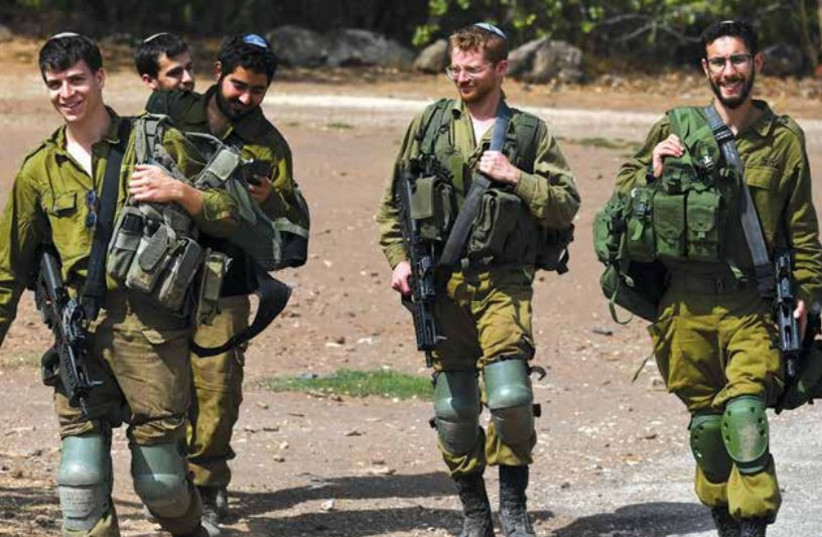Some 10,000 reservists have asked for mental health support, 1,000 reservist-run businesses have closed, 70,000 reservist students have been affected academically, thousands of reservists have been laid off from their jobs, and many have sought marriage counseling, according to Nifgashim, an organization that works to provide comprehensive support to reservists.
Nifgashim CEO David Solomon shared an example of how the intense wear the Israel-Hamas war is having on Israel's reserve soldiers is impacting not only their personal lives but also their IDF service. Of the 18 members of a special forces team Nifgashim works with who joined reserves on October 7, only 10 answered the call and showed up for the reserve duty in which the team is currently engaged.
"They told us, and we know this to be true, that if there is war, they will all come back," said Solomon. But this is "not enough" because of the increased security needs in Israel following the war, he explained.
The burnout crisis
"Many people are very worn out and tens of percent [of reservists] did not show up for their second or third call up," he said.
"Despite the fact that people really want to serve, they get to a crossroads and need to pick, 'do I pick my business, my family, or my country by doing reserve duty? That is the present situation."
The intense burnout felt by reservists does not only affect their ability to continue serving, but their personal life, families, workplaces, and businesses, said Solomon.

"A reservist is first and foremost a person with a family and a normal life." They are from all walks of life and have left their lives to enlist and serve together, he said.
He shared the story of the young wife of a soldier in a special unit who was admitted to a psychiatric hospital because of the intense anxiety she felt over her husband's safety.
"Every time a delivery person, [or anyone], knocked at the door, she thought someone was coming to tell her something about her husband," he said.
Nifgashim is attempting to offer support for all the challenges that reservists are encountering as the Israel-Hamas war stretches on. The main challenges they attempt to help with are difficulties with employment and for freelancers keeping up with their business, mental health challenges, problems for couples, and legal issues.
They provide help for individuals, as well as accompanying companies by providing support to company commanders and then mapping out the needs of all the soldiers in the company.
This helps because "The company commander invests a ton of time these days convincing people to come [to reserve duty] and understanding what everyone [in his company] is dealing with," Solomon explained.
It is also vital to create a change in society's attitude towards reservists, said Solomon. Israelis must make reservists feel supported and that the country is behind them, he said.
When asked what would happen if things kept progressing as they are now, Solomon said that we couldn't let this happen.
"I hope we don't get to that. We need to solve the problem before we get to that stage."
For more information on Nifgashim, visit: https://miluimnikim.org/en/
To donate: https://www.charidy.com/1716824406144912410
